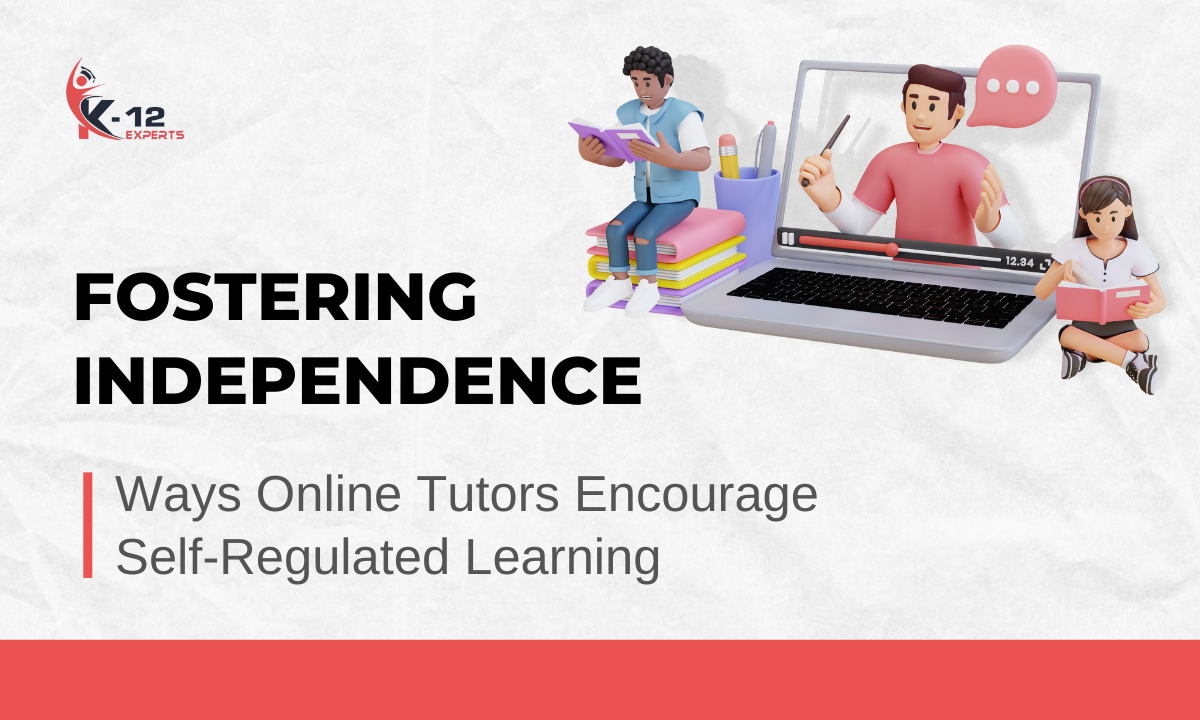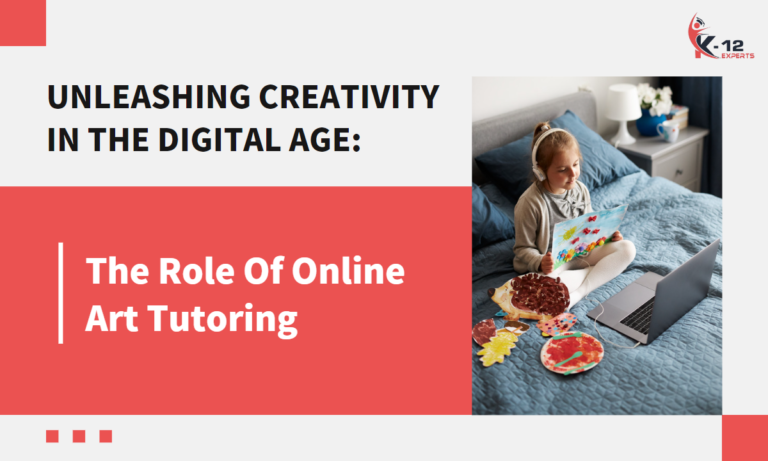Picture this: calculus is giving you a tough time. You sign in to your virtual tutoring session expecting step-by-step guidance. However, your tutor encourages you to solve the problem on your own first.
It’s not just about grasping math, it’s also about mastering the art of learning. Welcome to the world of self-regulated learning, where online tutors act not only as dispensers of knowledge but also as facilitators of your learning independence.
Let’s delve into how tech-savvy tutoring methods are reshaping education.
The Shift to Self-regulated Learning

You’ll see a big move towards self-guided learning in today’s changing educational scene, especially in online tutoring. This isn’t just a passing fad but a reaction to the increasing demand for independent, self-led learning.
This method boosts learners’ confidence, promoting self-reliance and honing critical thinking abilities. It puts you firmly in the driver’s seat of your learning journey.
This leans towards self-learning and encourages fresh ideas, shaking up old-school learning models and taking them to the next level. The perks are huge, but it’s crucial to fully grasp what this means.
This paves the way for our next chat: how online tutoring can spark independence.
Online Tutoring: A Catalyst for Independence
Online tutoring is more than just a knowledge source; it’s a means for honing self-sufficiency skills and steering your learning journey. It’s a powerful tool, particularly in the realms of Virtual Classroom Independence and Blended Learning Benefits.

Take a look at this:
| Virtual Classroom Independence | Blended Learning Benefits |
| Promotes learning at your own pace | Offers a combo of classic and digital learning settings |
| Cultivates problem-solving and decision-making skills | Encourages team learning and diverse teaching styles |
| Erases geographical limitations | Incorporates tech into education |
The takeaway here is that online tutoring transcends convenience; it’s instrumental in nurturing independent thinkers, promoting critical thinking, and embedding technology in education. It’s evident that digital learning is a real game-changer for independence.
Strategies for Encouraging Self-regulation

Online tutors have a knack for encouraging self-regulation in their students. Here’s the scoop:
They help students set their own study goals, instilling a sense of ownership and accountability.
They employ motivational methods like positive reinforcement and constructive critique, which do wonders for confidence and drive.
They guide learners in effectively managing their time and resources, turning them into self-reliant scholars.
Moreover, they endorse self-evaluation and introspection, helping students identify their strengths and areas needing improvement.
The Role of Technology in Independent Learning
You may not be aware, but tech is vital in encouraging self-learning. It’s key for self-guided study, boosting digital know-how, and maintaining tech accessibility.
Think of interactive platforms as a way to keep you engaged and help you remember info.

Digital libraries are your treasure troves of resources that boost your research skills.
Learning Management Systems, like a personal assistant, organize your course materials and help manage your time.
Online tutors are there for tailored guidance and promote learning at your own pace.
Lastly, assistive tools support students with special needs, ensuring nobody is left behind.
Using these tech resources, you’re upping your learning game while learning to stand on your own two feet.
The secret is knowing how to use these tools to shape your learning path.
Success Stories: Self-regulation in Action

Curious about how these methods practically play out? Let’s explore some success tales that demonstrate self-regulation at work.
Think about these real-life examples:
- A high schooler uses online tools to ace calculus, exceeding her educational targets and topping the class.
- An adult learner employs a flexible learning platform to pick up a new language, keep track of his progress, and tweak his study routine.
- A group of young students utilize an online teamwork tool to handle a project, split up the tasks, set time limits, and keep a check on progress.
- A university student applies self-regulated learning strategies to grasp a tough subject, leveraging online guides and quizzes for self-assessment.
These instances shed light on how self-regulated learning can lead to autonomy and help reach educational objectives.
Frequently Asked Questions
What Are the Costs Associated With Hiring an Online Tutor?”
When you’re looking to hire an online tutor, there’s a range of different costs to consider. You might have to pay for a platform subscription and an hourly rate for the tutor, and there could even be some unexpected charges. It’s really important to shop around and weigh these costs before making a decision.
How Can Parents Monitor Their Child’s Progress in Online Tutoring Sessions?”
To keep tabs on your kid’s advancement in online tutoring, you can make use of tools that track progress. This involves routinely checking updates, chatting with the tutor now and then, and motivating your child to take an active part in their education.
What Are the Qualifications for Online Tutors?”
Interested in hiring an online tutor? They should have successfully completed a Tutor Certification Program and demonstrated proficiency in Tutoring Technology. Such credentials confirm their ability to guide your child toward independent learning.
How Do Online Tutors Build Rapport With Their Students?”
Building a connection with students in an online setting involves a range of strategies for tutors. By being understanding and responsive, they can effectively address students’ requirements. The use of engaging digital resources, tailor-made course materials, and transparent dialogue aids in cultivating a robust educational bond.
Can Online Tutoring Be a Substitute for Traditional Classroom Education?”
Absolutely, there’s potential for online tutoring to take the place of conventional classroom learning. It’s a chance to enhance your digital skills and leverage the perks of technology. This modern method is efficient and encourages autonomous, self-guided study. After all, we’re moving towards a digital future!
Conclusion
Online tutors in today’s digital world are like guiding lights, leading you to self-directed learning. They share useful techniques, resources, and inspiring tales to spark your independence.
Tech isn’t just a gadget; it’s an agent of change, turning laid-back students into active learners. So, jump into the world of online tutoring, master self-control, and sail through the ocean of knowledge with newly gained self-reliance.
You’re not simply being taught; you’re controlling your own learning path.




